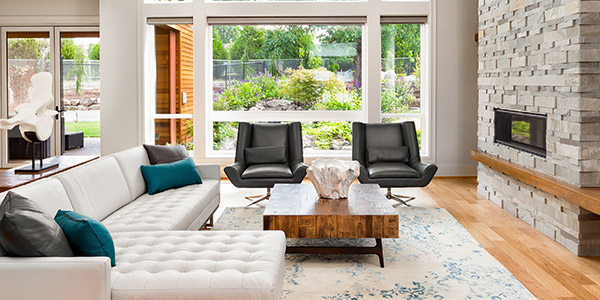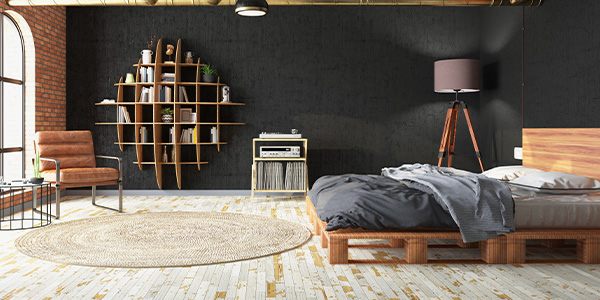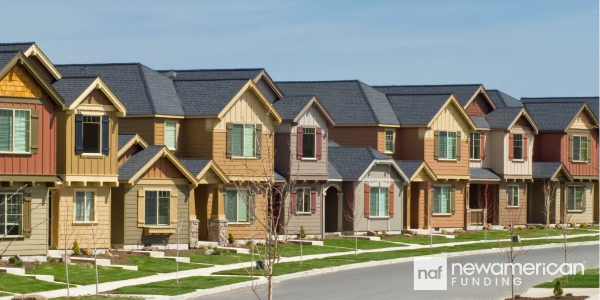Housing News
Considering Buying the Model Home
July 7, 2021
If you're in the market for a new home, you may have taken a look at a model home in a new development. Your agent probably walked you through a stunning unit with a big, open floor plan, attractive bonus features, an ideal backyard, and top-tier appliances. At this point, you may have fallen in love and decided you want to buy the model home.
You can do this, and often, it's a good idea. Buying the model home can save you money, getting you more houses (and possible extras like appliances and furniture) than you'd normally be able to afford. Here's everything you need to know to decide whether or not you should buy a model home.
Is it good to buy display homes?
Pros
- High-end features and extras
- Ready-to-go, and might even include furniture
- Everything is negotiable
Cons
- Slightly used condition
- Warranties may be close to expiring
- Quality might be rushed or questionable
High-end features
What draws many people to buying the model home is the craftsmanship and all the nice features they envision for a home. The model home is built as a marketing tool above all else—it's supposed to capture the attention of prospective buyers. This means that it often has state-of-the-art appliances, a bigger, better floor plan, and lots of extras you won't find in the other units.
Ready-to-go, and might even include furniture
If you buy a model home, you might even get to purchase the furniture along with it. If saving for a down payment didn't leave you with a lot of leftover cash, getting your furniture at a steep discount can be a huge plus. Not only that but having furniture included means your home is effectively ready to go when you move in. What's more, while other buyers in the development may have to wait a while for their home to be completed, yours is ready to go. If you want to move into your new home as soon as possible, this is a serious perk of buying a model home.
Everything is negotiable
Builders are often more motivated to sell the model home, which gives you more leverage for you to negotiate as a buyer. If the model home is sold, it will prove to bankers that the new development will be successful and encourage them to invest in the project. Your purchase can also help justify price increases for future home sales in the same development. On the other hand, if the development is filling up fast with few other homes to sell, the builder may want to sell the model because he or she no longer needs it to showcase home possibilities. Apart from being able to snag furniture and appliances at cost, you may also be able to get the home well below market value and negotiate the inclusion of repairs and replacements, such as carpet replacement or new paint on the walls.
Slightly used condition
If you're looking for a house that is in pristine, brand-new condition, you might not want to buy a model home. The house, as a marketing tool, has been walked through by potentially thousands of prospective homebuyers. The carpet has been trampled and won't ever look brand-new again. Appliances may already be well into their warranty period. This is why it's smart to negotiate repairs and replacements before you buy a model home. Some builders will sell the model home "as is," in which case you're responsible for all the wear and tear the model home has endured while being open to visitors seven days a week.
Warranties may be close to expiring
You'll want to check on any warranties on both the model home and the appliances as well. In some cases, the warranty clock on the house starts when they finish building the home rather than when you buy it. If this is the case, your 10-year warranty may have less than 10 years left. Ideally, the AHA advises that you make sure the warranties on workmanship and structural defects are effective from your purchase date—not the date of construction.1 It's also a good idea to see the warranties on all the appliances and check to see when they expire. If they expire before your move-in date, make sure to ask if the builder will warrant them for a longer period.
Are display homes cheaper to buy?
Buying a model home can sometimes be cheaper. Sometimes builders are more motivated to sell the model home than they would be with other units, whether because an early sale will encourage investors or because the development is almost sold out and they no longer need the model home. The American Homeowners Association (AHA) noted the builder may even be willing to sell it at a discount at this point.
The builder may also be willing to sell the furnishings at a discount, which can be helpful to the buyer who doesn't want to haul heavy furniture into the new home or is ready for an upgrade. Plus, even if you buy a model home for the standard price relative to other units in the development, it often comes with more square footage and nicer features than other units.
Some builders will even sell you the home, then lease it out for a year before you move in for marketing purposes or to keep the office they likely have in the home for another year. These costs can usually make a good dent in closing costs or mortgage payments.
That said, you might be paying a standard price for a unit that has more wear and tear, less time on the warranty, and rushed building quality. This is why you want to ask for new warranties and any repairs and replacements to be included in the cost. In the end, the question of whether or not buying a model home is cheaper comes down to your negotiation skills.
Is buying a model home worth it?
It can be very worth it to buy a model home. If you do it the right way, you can land a larger, nicer home than what you'd otherwise be able to afford. Make sure you know how much to save before buying your home. From there, you can gauge whether or not the model home is a good deal for your budget.
If you choose to go with the model instead of a newly built house in the same development, be sure you want everything included and that any defects can be addressed by the builder.
Ask for repairs and do a thorough inspection. Ask the builder if he would be willing to repair some of the structural issues or the damage incurred through repeated home showings. Some might be willing to repaint the walls or replace the carpet, the AHA explained. Also, ask if any defects discovered can be repaired. If the builder agrees, be sure to get it in writing. Realty Times advised to ask directly what repairs will be addressed before you move in, if any. You and the builder must be on the same page. Finally, be sure to get an inspector to look over the model to find any hidden problems that could surface a few years down the road.
Consider whether you need the extras. If you don't mind acquiring somewhat used but high-end features, then buying the model home might be worth it. But make sure you actually want all these special additions, and that you aren't just succumbing to the model home's attractive design. Think about your ideal home before you view the model home. Would you opt to add on many of these features? If not, you might want to rethink the purchase.
When it comes to getting a good deal on a model home, it's all about doing your homework and knowing what you can afford. Having a solid grasp on your budget going in will keep you from falling into the trap of spending more than you can afford on shiny, enticing features you don't need.
Use our handy mortgage calculator to figure out what your monthly mortgage payments will look like, and you'll be ready to start negotiating in no time.





 Smart Moves Start Here.
Smart Moves Start Here.